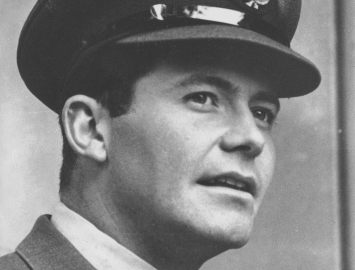At the risk of appearing to capitalize on content provided by tragedy, I cannot pass by an opportunity to celebrate the life and achievements of such an influential person to so many enthusiasts as John Haynes. Last week, surrounded by his family, John Haynes passed away after a brief illness at his home in England. Haynes was 80 years old. For many of us, John Haynes offered a guiding hand into our car hobby through his work as the author and publisher of automotive service manuals. The Haynes manuals gave enthusiasts around the world confidence to tackle their project cars, but John Haynes was more than just his writing. John Haynes was a bastion of self-sufficiency, pride of ownership, and enthusiasm that is rapidly fading from the modern world.
As we at ECS prefer to author articles with a more personal touch, I will not rewrite John Haynes’ obituary, which I have linked for you to read from the Haynes website. I can do no justice there and feel what has been said a dozen times already in other automotive journals and blogs is more than enough to explain who Haynes was on a biographical level. To me, though, John Haynes represents an ideal, or rather, a way of life, that we are quickly abandoning. Our preference for convenience, safety before freedom, and disposability are evident on a scale never before seen. We, the automotive enthusiast, DIYer, weekend warrior, are becoming endangered.
John Haynes wrote his first enthusiast-oriented service manual at the tender age of twelve. When I was twelve, I was proud I could build the more advanced Lego sets. From that first book, Haynes built a life around authoring manuals for hundreds of vehicles, both real and fictional, among other topics. The step-by-step nature, complete with exploded diagrams and helpful pictures, have helped millions of people pursue a service, repair, or restoration project through their own determination and his knowledge rather than fall for the trap of convenience. Today, fewer people than ever it seems are interested in working on their own cars, either for lack of knowledge, confidence, or desire. What Haynes stood for, however, was about the desire to take an ownership for something through the loving and painstaking process that is maintenance and care. His legacy, fortunately, will persist through those of us stubborn enough to continue working with our own two hands.
Owning something without a vested interest besides currency is, in my opinion, empty. For this reason, I will never buy another fellow’s project car (again). I feel a lack of connection to something into which I have not put energy, time, and love. As a reader, I think this is the underlying message in the Haynes manuals. A sense of pride and accomplishment unlike the completion of any other literary collection is available to anyone with a set of tools and the interest to pick up the book and get to work. This self-reliance was, until recent decades, the Human dream. Writers back to the earliest philosophers describe the mental utopia of independence. Haynes, through instruction rather than prose, wrote arguably equal pieces to that collection of qualities necessary for the determined DIYer.
With his passing, we have lost someone that represented what it means to be a true enthusiast. Someone who loves not just the object of their interest but all the aspects of stewardship, good and bad, that combined offer the fullest experience. Through his work, so many of us have found passion and joy in the simple acts of maintenance or restoration that relate to countless other facets of our lives. To maintain rather than replace, to build rather than buy, to expect longevity rather than succumb to planned obsolescence is what it means to be a real enthusiast. Rest easy, John Haynes. Your legacy will continue in every at-home shop through the hands and tools of those you directly and indirectly influenced through your life of automotive love.






